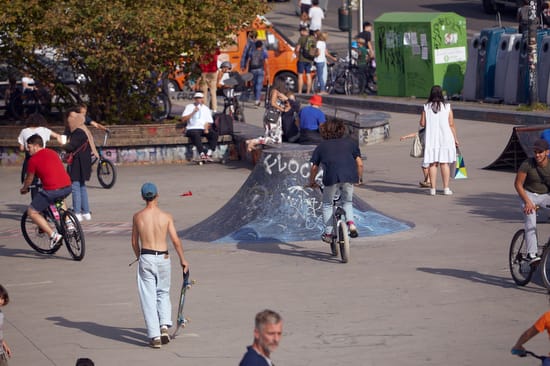The problem
- The search for suitable sports infrastructure is complicated by a huge institutional tangle.
- Too many politicians are competent in the areas of sport, too few are accountable.
- There is insufficient sports infrastructure, with first and foremost a gigantic shortage of swimming facilities. Brussels has one public swimming pool per 68 000 inhabitants, Wallonia one public swimming pool per 29 000 inhabitants, Flanders one swimming pool per 22 000 inhabitants.
- Sports competitions are organised in language groups so that Brussels Dutch-speaking youngsters often have to play sports all over Flemish Brabant but cannot play football against their neighbours. There should be a Brussels competition.
The consequences
- Athletes and sports providers and sports clubs become demotivated by unnecessary headaches looking for space.
- Children who cannot travel outside Brussels cannot participate in competitive sports.
- Interesting tools such as sport.brussels remain underused. This tool can help athletes and sports clubs find suitable infrastructure, provided it is consistently updated and expanded.
- Athletes choose their sporting activity based on language, competitive opportunities, or location, rarely on their talents. There is too little exchange between Brussels sports clubs and too little cooperation between Flemish and Walloon sports federations to establish a strong sports scene in Brussels.
What does Vooruit.Brussels want?
Sports and exercise have a huge impact on the daily lives of Brussels residents. Whether you work out to be mentally and physically fit, or you play sports in a club with friends to learn new skills. Sports should be possible for everyone!
- Competences around sports are being clarified.
-
- The Brussels Capital city-region is responsible for local sports policy. In this way, a real Brussels sports competition can finally be created.
- Regional sports infrastructure will be managed by the city-region. We do this first with swimming facilities, followed by regional (tennis courts, football fields, etc.) and local sports infrastructure.
- Sports infrastructures are transparent in opening hours and availabilities and have a clear pricing policy.
- Sport.brussels is being expanded and addresses the gaps in Brussels' sports offering. We are building a booking centre into this platform.
- Brussels invests in additional regional sports infrastructure and top sports infrastructure, expecting the other competent authorities to invest in Brussels Capital as well.
- We are investing in additional sports infrastructure, with a focus on swimming facilities.
- Soccer club Union gets a new stadium, the Marienstadion provides a venue for a new creative-sporting project.
- Public buildings such as schools, municipal infrastructure, and community infrastructure should be opened as much as possible and multifunctionally in an accessible and affordable way.
- Sports infrastructure does not always have to be within four walls. We invest in sports incentives in public spaces. We pay specific attention to gender- and age-friendly installations or implantation.
